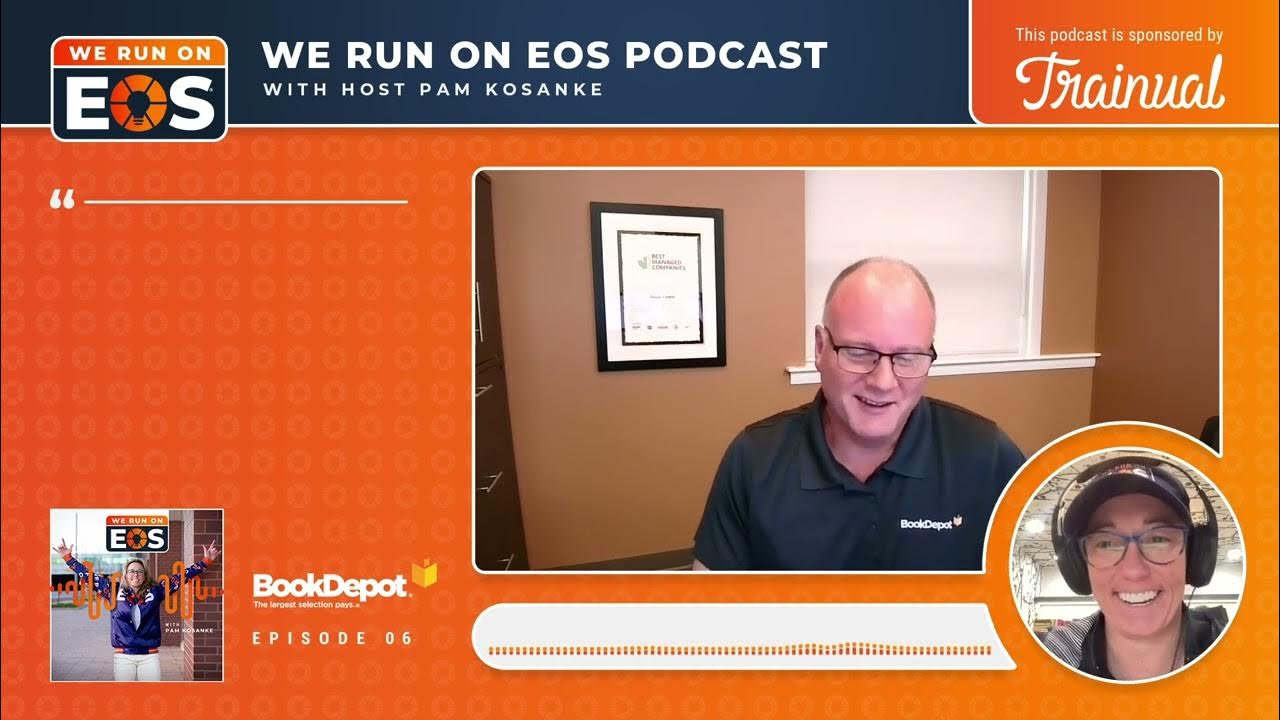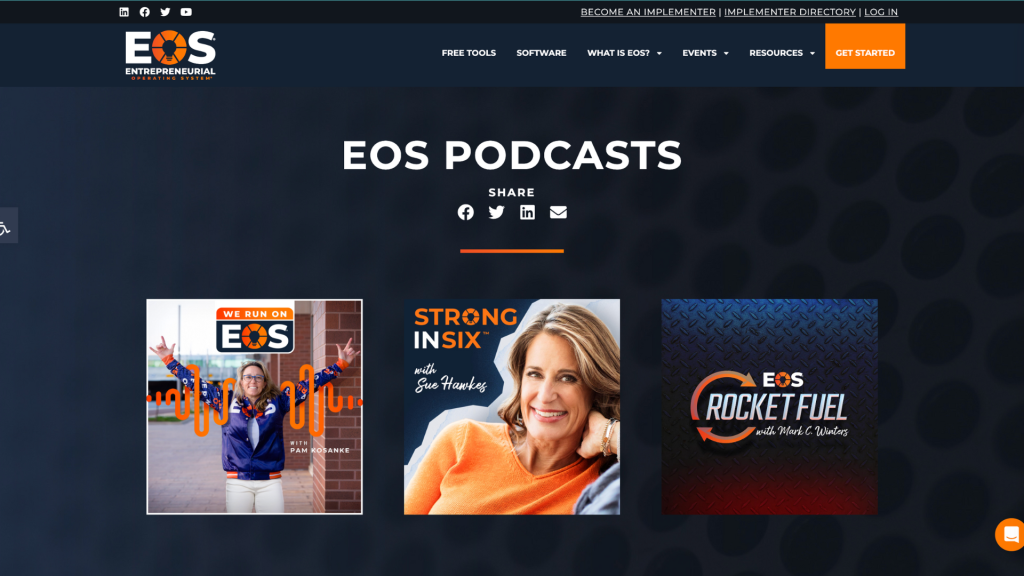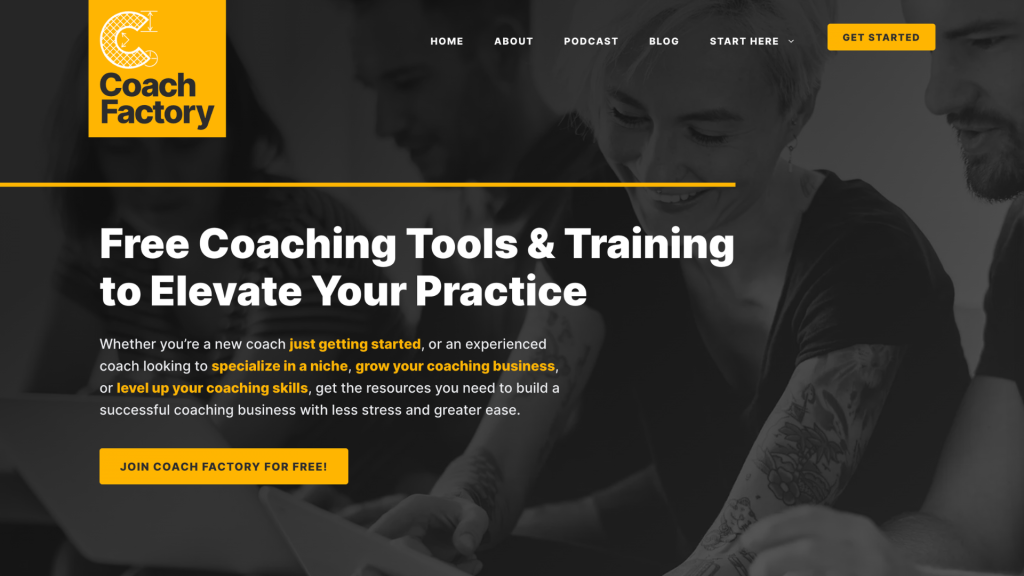Growing a company podcast takes a lot more than just publishing your show on your preferred platform and sharing a generic “our new episode is out now” on social media. And if you want your company to reap all the benefits of this medium, including podcasting’s unfair advantage, you will need a thorough marketing strategy. A podcast marketing strategy that ensures you reach the right audience.
In this article, I will share the key levers you can use to promote your company’s podcast. Specifically, I will cover:
- The power of podcasting for B2B businesses.
- What podcast marketing is.
- The importance of laying a solid foundation for promotion.
- And five tactics you can use to market your podcast.
How podcasting benefits B2B companies.
According to Gartner, 75% of B2B buyers prefer a sales experience free from interactions with sales reps. These buyers are diligent researchers, exploring websites, watching videos, and reading content before exchanging a single word with a sales team. And if your content fails to resonate, you miss a crucial opportunity to build trust.
This shift in buying patterns means you can’t get away with just another generic listicle article, and AI generated content won’t cut it either. If you want to keep your ideal customers coming back to you for answers, you need to make your content personal, showing people how you approach problems differently and why you think the way you do.
However, it’s not just about creating just any type of content. It’s about creating content in a format that your ideal buyers enjoy.
According to Signal Hill Insights, senior executives, the decision-makers in many B2B transactions, are more likely to be heavy podcast listeners than other podcast listeners, turning to their favorite shows as a source of education.
Considering this, podcasting becomes the perfect fit for B2B companies that want to strengthen relationships with clients and prospects, enhance brand authority, and expand their networks.
So, what’s the catch? Well, podcasting only works if you can get your show to the ears of the right people, and to do so you will need a great podcast marketing plan.
What is podcast marketing anyway?
In short, podcast marketing includes all the activities used to promote your show to reach and engage your target audience. These can include everything from paid advertising to word-of-mouth strategies.
Some people think podcast marketing success is about having the most listeners possible or a high number of downloads. However, podcast marketing is much more than that, and there is more than one way to measure your podcast’s success.
It all starts with having a clear goal for your podcast. Then, you can craft a podcast marketing strategy to help you get there.
For example, back in 2012, I started a board game publishing company with my wife and my cousin. Because we knew a lot about the industry, but not a lot about the details of publishing a game and people didn’t know us, we decided to launch a podcast as part of our business strategy. Instead of measuring success by the number of downloads, we decided to focus on how podcasting could help us build our network.
Our strategy worked as expected. We went from three people talking about board games in my basement to industry experts. The Dice Tower, one of the largest players in the space, added our podcast to their network. We befriended top indie publishers like Plaid Hat Games, Stonemaier Games, and Dice Hate Me, as well as recognized board game designers like Matt Riddle and Ben Pinchback. And even though the number of downloads wasn’t our goal, we had over 70K downloads, a wild number for a niche, first-time podcaster.
We might not have seen these results if we had focused solely on the number of downloads. And we wouldn’t have reached our expectations had we not laid the right foundation.

The importance of laying a strong foundation.
Podcasting can be organized into four distinct phases: planning, production, promotion, and analytics. Each step builds on the previous one. You can’t just record ad-hoc, launch whatever you want, and expect a quick marketing hack to turn your podcast into the next big hit. If you want your podcast to help you reach specific goals, you need to focus on three key factors before you hit record:
- Understanding your target audience.
- Focusing on quality.
- Developing a differentiation strategy.
Understanding your target audience.
The first thing you need to do is answer the following questions about your ideal audience:
- Who are they?
- What are they interested in?
- What are their pain points?
Answering these questions takes thorough research, but it’s worth the effort.
When our team worked on the Coach Factory podcast, we knew launching a successful podcast in the crowded coaching industry would be challenging. The most recognized coaches already had a podcast of their own, and they were selective about how they spent their time. However, we also knew we could succeed if we prepared properly.
The Coach Factory team had conducted a bunch of research on their audience. When our team came in to help with the planning, production, and promotion of the show, we had tons of information to guide us. We complemented their research with our own and used it strategically to create a podcast that would stand out. And when the show launched, it went from being new in the space to a sought-after podcast, with major players asking to guest on the show within three months of being live.
Establishing baseline quality.
Years ago, when podcasting was “new,” you could get by with a good idea and a homemade recording. Today, quality has become non-negotiable. Listeners simply expect great audio and engaging storytelling structures. Anything less than that makes it harder for your podcast to succeed.
Consistency is equally important. Maintaining a regular publishing frequency, ensuring episodes are of consistent duration, and keeping the format and hosts consistent help build trust with your listeners. And when you establish trust, you make it easier for listeners to choose your show week after week.
Developing a differentiation strategy.
As the podcasting space grows, there will inevitably be more competition. However, we haven’t reached market saturation yet, and you can still find niches where it is easier to get started. Regardless of the competition in your niche, standing out requires intentionality.
Launching the first idea that comes to mind won’t cut it. Your podcast’s format, topics, and guests must all be compelling and based on your end goals.
Let’s look at two examples of how a well-crafted differentiation strategy can help you stand out:
Case study 1: How Leading Voices in Real Estate used depth to build authority.
At a superficial level, this podcast seems to break a lot of the “best practices” suggested online. Each episode is 60+ minutes long instead of the standard 20 to 30 minutes. And Matt Slepin, the host, only releases new episodes twice a month instead of the commonly practiced weekly cadence. Matt paints a full picture of the real estate landscape and is selective with who is invited as a guest. Thanks to this level of intentionality, the show has achieved over 1.7 million listens and a 90% engagement rate. Plus, it has helped close a good amount of business, build relationships, and regularly gets Matt invited to speaking gigs.

Case study 2: How EOS Worldwide® uses breadth to create a network effect.
Instead of launching a single podcast covering a niche in depth, we helped EOS Worldwide® launch multiple shows, including We Run On EOS®, Rocket Fuel, and The EOS® Life. Each podcast covers a different aspect of the brand, creating a network. This has led to rapport building with EOS Certified Implementers® and listeners, and cross-promotion opportunities across the different shows. The results: they’ve been at the top of Apple podcast charts for over 100 weeks in a row.

The podcast marketing toolkit: five tactics you can use to promote your show.
To maximize your podcast’s reach, you need to leverage multiple tools and channels. From the most basic to the most complex, here are five tactics our team uses to promote our clients’ shows:
1. Making your podcast attractive and discoverable.
You can have a great podcast with exciting episodes and the highest quality sound, but if your show’s presentation isn’t compelling enough, few will listen to it. When launching your show, make sure to optimize the following aspects:
- Copy: Choose a podcast name that captures attention, induce curiosity through episode titles, and make sure your episode descriptions make your ideal listeners want to hit play.
- Visual: Invest in eye-catching cover art that helps your show stand out in its space.
- Trailer: Create a podcast trailer that demonstrates the value you can deliver to listeners.
- Distribution Networks: Make sure your podcast is available on all major platforms.
2. Leveraging owned channels.
This makes up a big chunk of your podcast marketing strategy, and it is in your hands to make these channels work for you. I will cover the main channels we suggest our clients invest resources in, including social media, newsletters, and websites. However, you should analyze all your owned channels and explore how to use them to promote your show.
Social media.
Your social media promotion plan has to go beyond publishing posts that say, “Our new podcast episode is out,” which is what most companies do. This happens because companies focus on promoting the podcast instead of creating excellent posts that deliver value first and promote the podcast second.
Instead of using generic copy, you can repurpose content from the show, like audiograms and quotes, to share key lessons that your audience will find valuable. You can also create preview posts for upcoming seasons and episodes to create hype and build up curiosity.
Additionally, you need to make sure your social media content follows best practices, such as tagging all the people involved and tailoring the copy for each specific platform. You shouldn’t just copy and paste the same text across all your platforms, even if that seems like the easiest thing to do.
Newsletters.
If your company has a newsletter, you already have a channel full of engaged followers who could be interested in your podcast. Just like with social media content, you want to make sure you tailor your copy and content to the medium, keeping your audience’s needs into account.
You can repurpose copy from the episode description to announce new episodes and direct traffic to them. You can also expand on the main ideas from each episode in the newsletter to give your readers more depth.
Company websites and dedicated sites.
When it comes to podcasts and websites, you have two options: you can integrate the podcast into your existing website or create a dedicated microsite.
When you integrate the podcast into your current website, you can drive your existing traffic to your podcast. All it takes is adding pop-up CTAs and carefully placed banners. And by creating a dedicated space for your podcast on your site, including episode show notes, you can draw listeners in and make it easier for them to explore your business and get to know you better. Also, publishing your show notes increases Search Engine visibility, driving even more traffic to your site. One of my favorite examples of how companies can use their podcast to draw attention to their site is EOS® Worldwide. Each episode includes a call to action to learn more about the company and visit the website. Once there, they can explore any of the company’s many solutions.

On the other hand, having a dedicated site for your podcast will give you more control over branding, which can be especially important if your show caters to a niche audience or subgroup of your general business audience.
Having a stand-alone website will also make it easier to monetize your show if that is one of your goals. A great example is the Coach Factory website—the whole site is geared towards indirectly getting coaches familiar with MCode, a tool that helps them evaluate their clients’ strengths and motivators.

3. Paid advertising.
Once you have covered your bases with owned channels, you can explore running paid ads to promote your show. There are lots of ad placement options, from social media and search ads to promoting on podcast platforms such as Spotify and Podroll, purchasing host-read ads in other shows, and even paying for ads in newsletters that are popular with your target audience.
When exploring the possibility of using paid ads for your show, take the following into account:
- The potential reach you will gain.
- Whether you are advertising to people who already listen to podcasts or people who don’t usually listen to podcasts.
- What the audience is looking for, and how you can align your message with what they’re looking for in that channel.
Paid ads should complement your overall podcast marketing strategy, not be the only source of listeners.
For example, when our team worked on At the Brink, a show about the dangers of nuclear weapons, we had high-profile guests for the first season – including former President of the United States, Bill Clinton. Because the show counted so many high-profile guests, the show didn’t need to run paid ads. However, the second season was different. Not only did this season include fewer high-profile guests, but there was also a wide time gap between the end of season one and the launch of season two. To ensure season two would successfully attract many listeners, we suggested using paid ads.
As I mentioned earlier, it all comes down to goals. If you know what you want to accomplish, picking the right marketing tactics to promote your show will be easier.
4. Pitching your podcast to the media.
Apart from paid advertising, there are other ways to get your show in front of audiences that have yet to hear of you. One great way to do so is by working with PR companies or building relationships with media outlets and influencers. Building these relationships without hiring a PR firm will likely be a long-term play, but it can help you reach new audiences and build stronger connections.
If you want to pitch your podcast to media outlets and influencers, you will need to create a media kit to facilitate the process.
5. Community-driven growth & word-of-mouth opportunities.
Creating word-of-mouth opportunities is another tactic that you have to build over time, requiring consistency to be effective. It is especially useful if you are targeting a niche audience.
To engineer word-of-mouth marketing, you should include compelling CTAs within each episode, asking current listeners to share your podcast with others who might find it valuable. Then, if you have an interview-style podcast, you can also create shareable assets for your guests to use on their own platforms.
However, keep in mind that guests don’t always share, and most listeners check out before the CTAs. This is why you need to be resourceful and creative. Ask your guest or your guest’s marketing team what assets they would like to use to share the episode. And for the CTA’s, try to get clever and add some fun. You can use techniques like “a state change” or something similar to actually grab your listener’s attention.
If applicable, you can also ask your employees to help spread the voice about a new podcast, season, and episodes. Depending on your company’s size and industry, this can have a big impact.
Finally, if it makes sense for your podcast, you can leverage online communities such as Slack, Reddit, Discord, and LinkedIn groups to create awareness for your show. But you can’t just jump into these groups and shamelessly promote your podcast. Instead, you need to cultivate relationships, provide value, and make sure your podcast is accessible in places like your bio.
At the end of the day, if you want to leverage community-driven growth, you need to strive for authenticity in every interaction. And the best thing that can happen is that you have such a great show, that the listeners take it upon themselves to spread the word for you.
Wrapping up.
Podcast marketing is essential for achieving the success your show deserves. By understanding your audience, focusing on quality, developing a unique strategy, and leveraging various promotional tools, you can stand out in a crowded market and build lasting trust with your audience.
If you want to explore what podcasting can do for your business and how to enhance your brand’s authority, expand your network, and ultimately drive business growth, schedule a discovery call with our team today.


